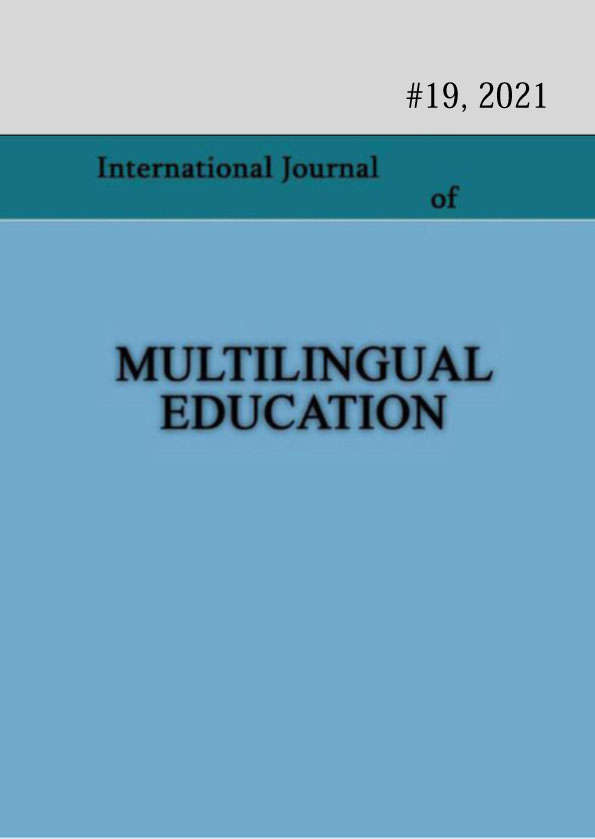TED talks as listening activities in the ESP classroom
Keywords:
listening skill, ESP, social and political sciences, TED talksAbstract
The paper aims at showing how a well-known website ‘TED talks’ is used for creating listening activities in the ESP classroom in order to achieve the main goal which is to develop active listeners. It is needed when one is talking to another person (interactive listening) or when listening to a talk or a lecture (one-way listening). (Christine C. M. Goh 2012) . Listening tasks discussed in the paper are designed for students of social and political sciences. The syllabus of the faculty includes several disciplines such as Psychology, Politics, International Relations, Human Geography, Mass Communications. The paper presents how ‘TED talks’ might be used for creating listening activities using ‘top-down’ and ‘bottom-up’ strategies (Harlan Mills and Niklaus Wirth developed the top-down approach for software development field). In addition, the paper shows how the activities are conducted and what are the results of the performance. ESP listening might be considered as different from ESL listening since each discipline, listed above, has its own specific technical and specialized terms. However, methods of working on listening skills are similar and consists of stages which give opportunity to accomplish the task easily. Since Students who get ESP training are supposed to have experience in doing ESL course, they have motivation to be involved in the process and high interest in order to enrich skills for their professional development.
References
Chaudron, C., Loschky, L. & Cook, J., (2012). Second language listening, Chapter 4; Comprehension and lecture note-taking Published online by Cambridge University Press: 05 October
Ferris, D. & Tagg T. (1996). Academic Listening/Speaking Tasks for ESL Students: Problems, Suggestions, and Implications. TESOL Quarterly Vol. 30, No. 2 (Summer, 1996), pp. 297- 320 (24 pages) Published By: Teachers of English to Speakers of Other Languages, https://doi.org/10.2307/3588145
Goh, C. M. (2012). The Handbook of English for Specific Purposes (eds B. Paltridge and S. Starfield). – John Wiley & Sons, Ltd, Chichester, 2012. – P. 55-76.). https://www.cambridge.org/core/books/abs/academic-listening/second-language- listening-comprehension-and-lecture- notetaking/2D6A3AFA255FD16E3EDE357AAC118E56
Johns, A. M. & Dudley-Evans, T. (1991). English for Specific Purposes: International in Scope, Specific in Purpose 1991 TESOL Quarterly Vol. 25, No. 2 (Summer, 1991), pp. 297-314 (18 pages) Published By: Teachers of English to Speakers of Other Languages, Inc https://doi.org/10.2307/3587465
Richards J. C. & Rodgers Theodore S. (1986). Approaches and Methods in Language Teaching Cambridge Language Teaching Library
Richards, J. C. (2006). Communicative Language Teaching Today. Cambridge University Press
Richards, J. (1990). Designing instructional materials for teaching listening comprehension, in ‘The Language Teaching Matrix’, Cambridge,
Underwood, M. (1989). Teaching Listening. Longman
Downloads
Published
How to Cite
Issue
Section
License
Copyright (c) 2021 Tamar Kekelidze, Guranda Kukuladze

This work is licensed under a Creative Commons Attribution-NonCommercial 4.0 International License.
Copyright (c) - Authors who publish with this journal agree to the following terms: Authors retain copyright and grant the journal the right of first publication with the work simultaneously licensed under a Creative Commons Attribution-Noncommercial 4.0 International License, which allows others to share the work with an acknowledgement of the work's authorship and initial publication in this journal. Authors are permitted and encouraged to post their work online (e.g., in institutional repositories or on their personal website) prior to and during the submission process, as it can lead to productive exchanges, as well as earlier and greater citation of published work (see The Effect of Open Access). Authors may enter into separate, additional contractual arrangements for the non-exclusive distribution of the journal's published version of the work (e.g., post it to a repository or publish it in a book), with an acknowledgement of its initial publication in this journal.

